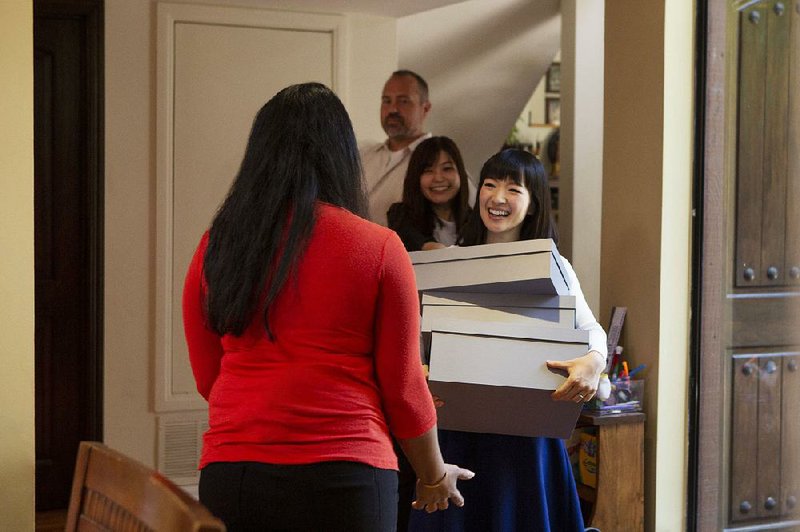Marie Kondo's popular book The Life-Changing Magic of Tidying Up, now a Netflix series, has prompted a discussion about which possessions are valuable and which ones we can part with because they don't "spark joy." But, as an organizer, I would argue it's even more important to make those decisions on the front end -- when you're online or in a store -- so that everything surrounding you is something you need, use and enjoy. Here are some strategies.
• Understand your motivation
Many people have one or two categories of items they're inclined to overbuy. For some it is clothing or books, for some it's food, and for others it may be office supplies. Take time to consider why you feel compelled to buy those items. Do you like the way it feels to buy a new sweater or a new book, do you worry about running out of food, or do office supplies help you feel like you have the tools to get yourself organized? Be cognizant of what is motivating you to buy those items and consider forgoing a purchase from time to time. Or, at the very least, for every one item you bring into your house, remove one item from the same category. Success breeds success. Once you feel more in control of your buying habits for one category, that can extend to other areas.
• Rethink bulk-buying
Buying in bulk is a trend that seems here to stay, although I've never understood why it's necessary to buy so much of one product at one time. I realize you can save a bit of money and time, but it's important to consider the stress of fitting everything into your home, trying to use products before they expire and then disposing of what you inevitably don't use.
Most of us live within a few miles of a drugstore or grocery store, and we're also able to order online and have things delivered to us in a day or two. By all means, have some extra paper towels and toilet paper on hand. And if you're planning a party or hosting guests, buy food and drinks in bulk. But one way to reduce the stuff weighing us down is to rethink whether it's necessary to stock up on so many items that they're no longer a convenience but a burden.
• Avoid 'just-in-case' impulses
It's so easy to buy so many items in so many places -- hats and gloves at the grocery store, food and paper products at the convenience store, office supplies and stationery at the bookstore -- that people pile up purchases that fall into the impulse or "just-in-case" category. We're not sure whether we really need it, but it's there, so why not grab it -- just to be safe? Or, we tell ourselves, it's only $10, I'll probably use it, and if I don't need it or like it, I'll just return it. Right? Wrong.
Shopping like this may give you the sense that you're on top of things, but what you're really doing is creating more work. If that item is a duplicate, doesn't fit or you end up disliking it, you'll have to decide, do I keep it? And if so, where? Or do you give it away? And to whom? Or do you return it? Those types of decisions tend to paralyze people, and the objects end up as clutter. This type of behavior, multiplied over dozens and dozens of purchases, not only clutters your house, it causes stress.
Make a habit of not buying products just in case. Try to avoid impulse purchases and buying items just because they are a good deal or on sale. For some purchases, online or otherwise, enact a waiting period. Put the item in your virtual basket and give yourself 24 hours before buying. And if you see something in a store, go home, check to see whether you really need it and spend a day considering whether you really want it. If you answer yes to both, then buy it.
• Look outside the buying box
Instead of immediately buying everything you need or want, consider whether there is another way you could obtain it. Perhaps you could check out a book from the library, or borrow a power washer that you'll only use once or twice a year from a neighbor. If you get creative, you can save money and won't be saddled with so much stuff. Challenge yourself to think differently.
The term "mental load" became part of our vernacular a couple of years ago, and we think of the concept as the constant list of tasks on our to-do list. But our emotions are also taxed by all the clutter surrounding us. More stuff equals more stuff to organize, more items to clean, more to keep track of and more to eventually throw away, donate or recycle. Let's make a goal to rethink how much stuff, and stress, we welcome into our homes.
Anzia is a freelance writer and owner of the organization business Neatnik.
Style on 01/22/2019
